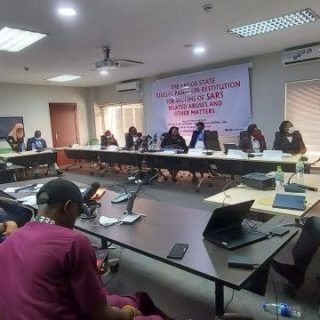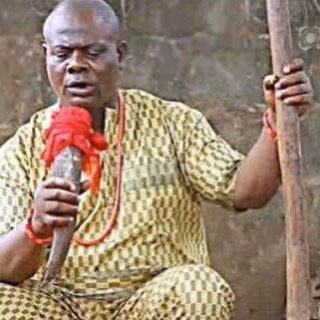Citizen is a column that explains how the government’s policies fucks citizens and how we can unfuck ourselves.
In Oko-aba, Abule-Egba, Lagos, a budding journalist, Pelumi Onifade captured Abiodun Bolarinwa, a politician, shooting at a crowd after not being allowed to address them. However, since October 20, 2020, when the incidence occurred, Abiodun Bolarinwa has still not been sanctioned.
Today, we will explain Nigeria’s firearms act, and why Abiodun Bolarinwa should not have had access to guns.
The firearms act was enacted in 1990. The main point of the law was that no person should be in possession of any firearm in Nigeria, except such person has a licence from the president of the Inspector General of Police.
Some of the most important provisions of the law include:
1. Possession of firearms
Section 3 of the firearms act states that no person must have in his control any firearm of one of the categories specified in the Act, except in accordance with a licence granted by the President.
The firearms in this category includes artillery, gas explosives, rocket weapons, bombs and grenades, machine guns and machine pistols, military rifles, revolvers, pistols and any other firearm that is added to the category.
2. Possession of personal firearms
Section 4 of the firearms act states that no person must be in possession of any personal firearm except a licence has been granted by the Inspector General of Police.
3. Muzzle-loading firearms are prohibited
Section 5 of the firearms act states that the Commissioner of Police of a state may, by order, prohibit the possession or use of muzzle-loading firearms.
4. Firearm licences are not rights
Section 6 of the firearms act states that the authorities have the right to grant a licence permit, and revoke a licence, and the licence to own a firearm may be given as the authorities may think fit.
However, nobody will be granted licence of a firearm if the person is under the age of 17, is of unsound mind, has defective eyesight, has intemperate habits, or has been convicted of an offence relating to violence within the past five years .
5. Safe custody of firearms
Section 7 of the firearms act states that the licenced owner of a firearm must keep the firearm in safe custody.
6. Prohibition in dealing in arms except by a registered dealer
Section 9 of the firearms act states that nobody must sell a firearm in Nigeria except the person is a registered firearms dealer.
7. Maintenance of armouries
Section 10 of the firearms act states that registered firearms dealers must maintain armouries for the purpose of selling firearms.
8. Sale only to licence holders
Section 11 of the firearms act states that nobody must transfer firearms to anybody else except that person is a registered firearms dealer.
9. Stamping of firearms sold
Section 12 of the firearms act states that every registered firearms dealer must stamp the permit that was given to them to trade in firearms, with the person’s name, number or any other particular required.
10. Import of firearms
Section 17 of the firearms act states that nobody must import or export firearms through sea or air or by any other means into Nigeria, except a port in Nigeria.
11. Restriction on import of firearms
Section 19 of the firearms act states that no person must import any firearms or ammunition into Nigeria, except the person produces to a customs officer, the licence to import a firearm or ammunition.
12. Prohibition of manufacture
Section 22 of the firearms act states that no person will manufacture a firearm in Nigeria except the armed forces, established with the discretion of the president.
13. Penalty
Section 27 of the firearms act states that anyone found guilty of the offence of possessing a firearm without a licence is liable to a minimum sentence of ten years.
14. Production of licence
Section 28 of the firearms act states that anyone who has a firearms licence or is in possession of a firearm must produce it if a police officer requests it from him, and if he is unable to produce it, the offender will be fined one hundred thousand naira or sentenced to six months imprisonment.
From the provisions of the law, it is clear Abiodun Bolarinwa should not have had access to a firearm. Section 6 of the firearms act states that a firearms licence should not be granted to a person who has “intemperate habits”, or has a lack of self-control.
Consequently, the Nigerian police authorities have exercised a serious lack of judgement if they truly granted Abiodun Bolarinwa licence to firearms. And they owe the Nigerian public an explanation.
We hope you’ve learned a thing or two about how to unfuck yourself when the Nigerian government moves mad. Check back every weekday for more Zikoko Citizen explainers.
COMPONENT NOT FOUND: donation

 politician apparently shooting at
politician apparently shooting at 


